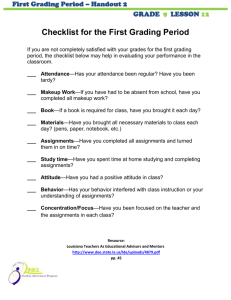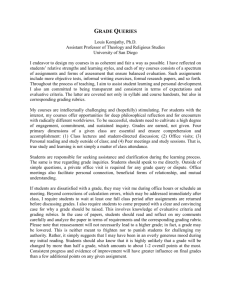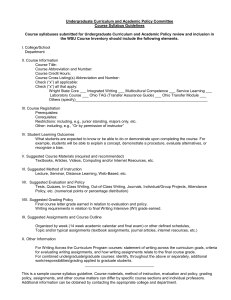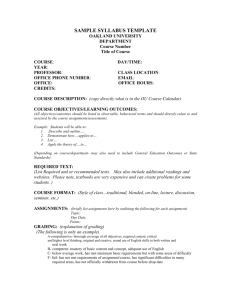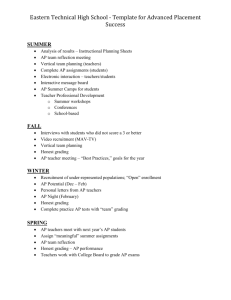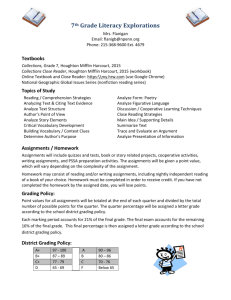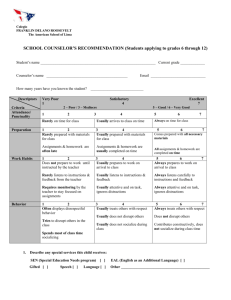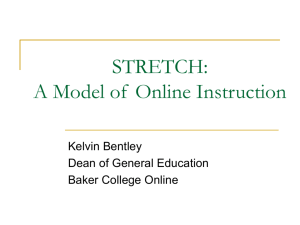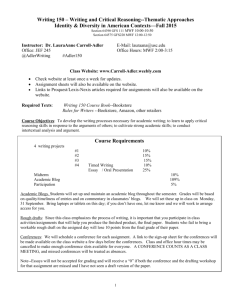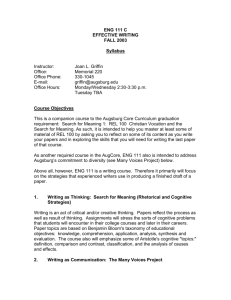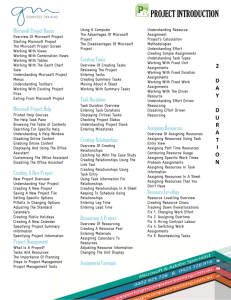Teaching Effectively and Efficiently
advertisement
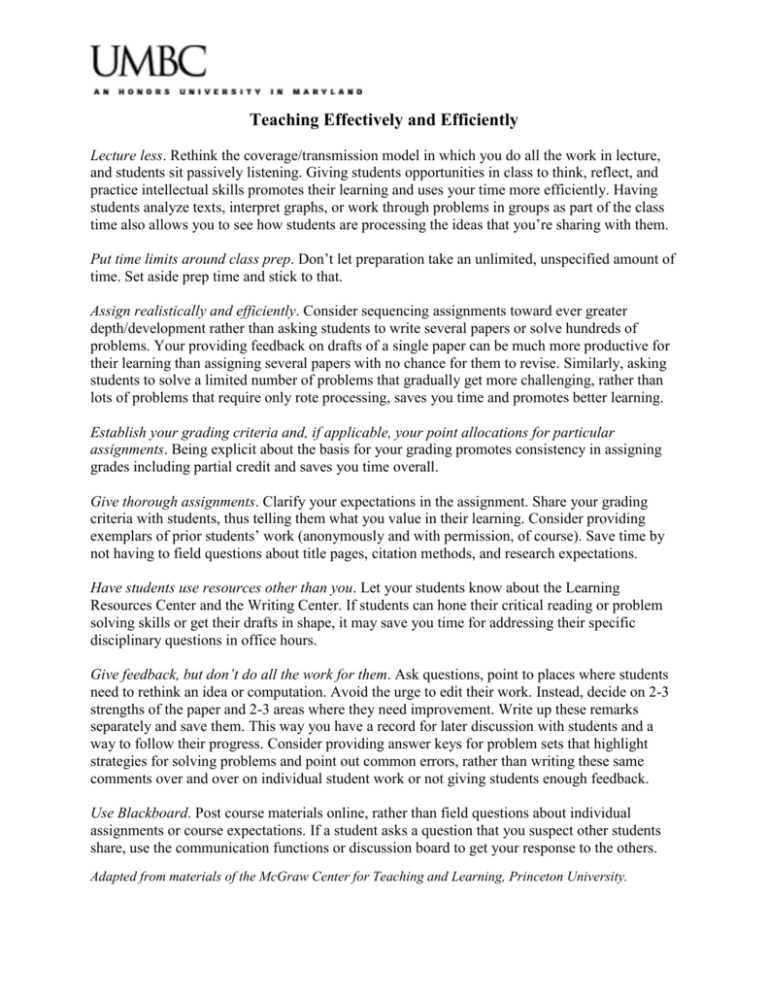
Teaching Effectively and Efficiently Lecture less. Rethink the coverage/transmission model in which you do all the work in lecture, and students sit passively listening. Giving students opportunities in class to think, reflect, and practice intellectual skills promotes their learning and uses your time more efficiently. Having students analyze texts, interpret graphs, or work through problems in groups as part of the class time also allows you to see how students are processing the ideas that you’re sharing with them. Put time limits around class prep. Don’t let preparation take an unlimited, unspecified amount of time. Set aside prep time and stick to that. Assign realistically and efficiently. Consider sequencing assignments toward ever greater depth/development rather than asking students to write several papers or solve hundreds of problems. Your providing feedback on drafts of a single paper can be much more productive for their learning than assigning several papers with no chance for them to revise. Similarly, asking students to solve a limited number of problems that gradually get more challenging, rather than lots of problems that require only rote processing, saves you time and promotes better learning. Establish your grading criteria and, if applicable, your point allocations for particular assignments. Being explicit about the basis for your grading promotes consistency in assigning grades including partial credit and saves you time overall. Give thorough assignments. Clarify your expectations in the assignment. Share your grading criteria with students, thus telling them what you value in their learning. Consider providing exemplars of prior students’ work (anonymously and with permission, of course). Save time by not having to field questions about title pages, citation methods, and research expectations. Have students use resources other than you. Let your students know about the Learning Resources Center and the Writing Center. If students can hone their critical reading or problem solving skills or get their drafts in shape, it may save you time for addressing their specific disciplinary questions in office hours. Give feedback, but don’t do all the work for them. Ask questions, point to places where students need to rethink an idea or computation. Avoid the urge to edit their work. Instead, decide on 2-3 strengths of the paper and 2-3 areas where they need improvement. Write up these remarks separately and save them. This way you have a record for later discussion with students and a way to follow their progress. Consider providing answer keys for problem sets that highlight strategies for solving problems and point out common errors, rather than writing these same comments over and over on individual student work or not giving students enough feedback. Use Blackboard. Post course materials online, rather than field questions about individual assignments or course expectations. If a student asks a question that you suspect other students share, use the communication functions or discussion board to get your response to the others. Adapted from materials of the McGraw Center for Teaching and Learning, Princeton University.


